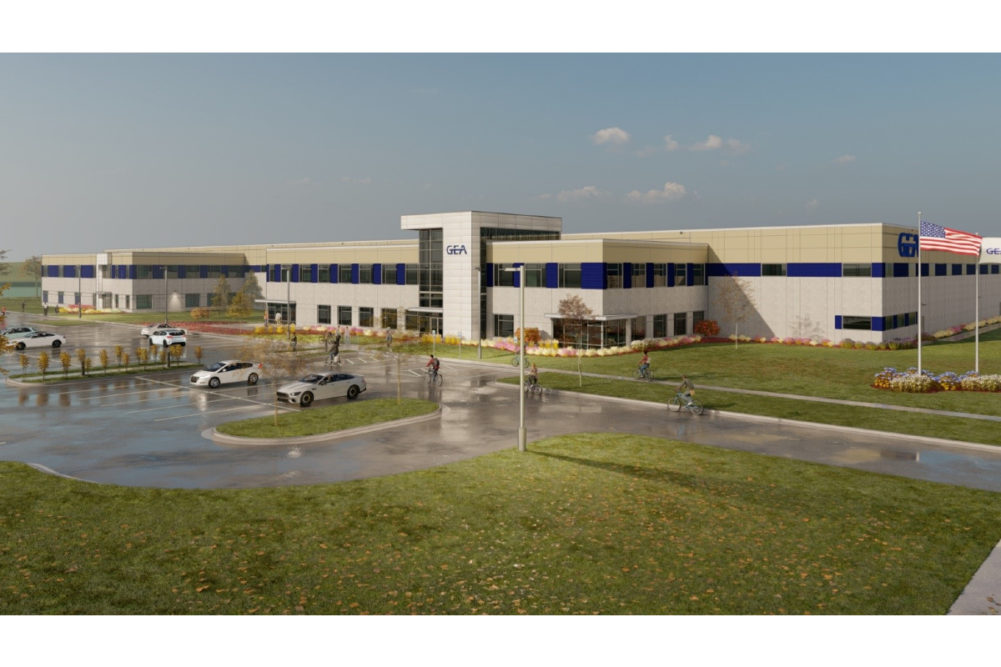JANESVILLE, WIS. – International technology supplier GEA, looking to meet industry demand for complementary proteins and ingredients, broke ground on a 12,900-square-foot technology center for alternative proteins.
GEA shared that the Janesville, Wis., facility, set to open in 2025, will develop industry-ready alternatives to meat, dairy, seafood and eggs.
The company said it plans to support manufacturers by scaling up the production of novel plant-based, microbial and cell-based foods. GEA already has a production facility in Janesville and plans for the new center to complement it.
Arpad Csay, who leads GEA’s new food activities in North America, said at a May 8 groundbreaking ceremony that the company’s investment underscores GEA’s commitment to food industry innovation and sustainability.
“The technology center will offer foodtech businesses a platform to develop and derisk their processes to ensure technological and commercial viability,” Csay explained. “It helps startups in the sector implement a business strategy that requires little upfront investment. This way, we help accelerate the development of market-ready products.”
GEA said the center will feature cell cultivation and precision fermentation pilot lines, as the company aims to connect benchtop and commercial production of alternative proteins.
Csay said GEA expects novel food production methods to become more prominent in the years ahead.
“This development will require a diverse pool of skilled professionals from operators in the plants to bioprocessing engineers designing production systems and scientists pushing boundaries through research and development,” he said. “Our technology center will help develop this future workforce by educating students and young professionals about the underlying biology and bioprocesses. We are excited to work with community colleges and universities to build these competencies in the region.”
Sustainability played a factor in the facility’s design, as well, with GEA aiming to become a net-zero operation by 2040. The company shared that its new center will be powered by renewable sources and not fossil fuels. GEA said instead of using natural gas in building technology and process equipment, it will use heat pumps and systems powered by electricity. The company also pointed to a ground-mounted photovoltaic system that will generate 290 MWh of electricity per year, with surplus energy being fed into the grid. What’s more, GEA explained that the photovoltaic system is expandable, making it possible for green energy to keep being generated even when process demands increase.
The investment in foodtech, GEA added, should diversify locally based industries, with the center aiming to strengthen the grassroots economy and make the region an appealing destination for collaborative research and projects.

